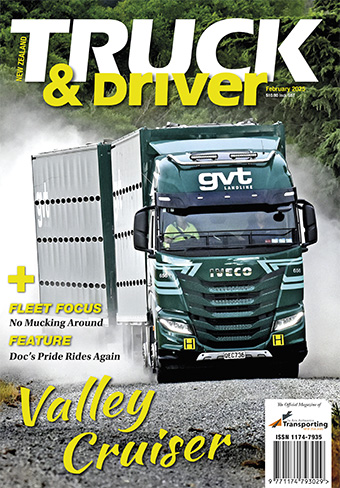
Ports lead the way on working together to improve worker safety
Posted: 13-Dec-2024 |
On the last Friday of November I had the pleasure of attending the Port of Auckland to join the Minister for Work Place Relations and Safety, Hon Brooke van Velden in the launching of the Approved Code of Practice (APOC) for loading and unloading cargo at ports and on ships.
The result of a huge amount of work and collaboration, the APOC was still produced in a record 15 months, ably led by Maritime NZ Chief Executive Kirstie Hewlett. For the first time, all commercial ports in New Zealand now have a code of practice approved by the Minister to follow.
Listening to the speeches it was clear to all that the APOC was the product of successful leadership from all of the parties involved. Ports are complex operations, and keeping workers safe amongst ships, docks, moving containers, trucks and trains takes a coordinated and concentrated effort. Kirstie Hewlett, and Roger Gray (POAL CEO) spoke proudly about how leaders and workers from the ports, shipping companies, stevedores and unions came together to collectively define what good practice looks like for port safety.
This was not a straightforward process. There had been too many deaths and serious injuries at New Zealand ports, and everyone involved had strong opinions about the causes and where the fault lay. It took a number of robust, hard conversations to get these views aired and on the table. The Port Health and Safety Leadership Group, made up of ports and stevedoring companies, the Port Industry Association, unions and Maritime NZ provided the forum to get this done. Traditionally these groups have not always seen eye-to-eye, so it was all the more impressive to see how closely they worked together. Acknowledging past failings, the leadership group moved on to agreeing the collective action needed to deliver better safety outcomes. I was particularly impressed to see union leaders standing up and talking about how successful it had been working with port management and the regulator.
To me, this was a great example of leadership. Leadership is not just about leading our own organisations, increasingly it is about coming together with other organisations, sometimes leaving past disagreements in the past, and forging new ways ahead. Over a cup of tea after the speeches I heard a Board member lament "if only we could bottle this approach and share it around in Wellington". I couldn't agree more.
In an interesting piece of timing, in the same week the former Port of Auckland CEO was convicted of exposing workers to a serious risk of death or injury in breach of his due diligence duties as an officer of POAL. This served as a timely reminder that when it comes to safety we are never good enough, it takes continual vigilance and effort to keep our people safe on the job.
Justin Tighe-Umbers, Chief Executive, National Road Carriers Assn




 + EQUIPMENT GUIDE - FREE
+ EQUIPMENT GUIDE - FREE
